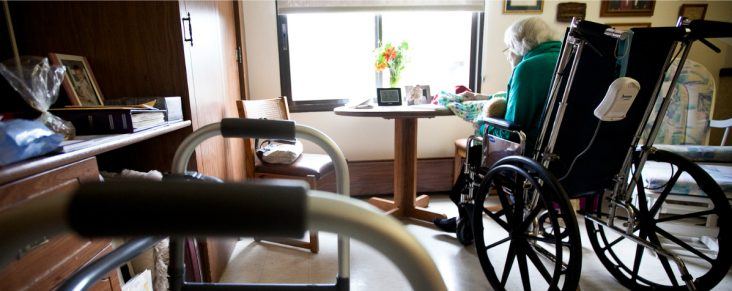State, long-term care providers ink MOU
by May 20, 2016 7:11 pm 311 views

The memorandum aims to reduce the cost of long-term services for the state’s aging and physically disabled populations. The population needing long-term services and supports is expected to grow by 25% by 2025.
The basic objectives originally were proposed by the AHCA to the Health Reform Legislative Task Force Feb. 17 at a time when that task force was considering implementing managed care, a system where private companies manage part of the Medicaid program.
The two sides agreed to find ways to rebalance services in a more cost-effective, less fragmented way; improve the assessment process and add an independent assessment for preventative care; and create a tier-based determination for the level of care, including high need, moderate institutional care, and preventative care. The two sides also agreed to find ways to improve program integrity, and address workforce shortages in the industry.
The AHCA agreed to lead discussions with providers to meet the program’s objectives, to identify non-state funding opportunities to improve coordinated services, and to hire the consultant group Sellers Dorsey to help design reforms. DHS agreed to provide the association with data necessary for the reforms, seek federal waivers to make the changes possible, and implement the programs.
The groups have developed a timeline for creating the reforms. The process for applying for the federal waiver will begin later this year, with negotiations beginning next year. An implementation plan is expected to be developed the first part of next year. The two groups hope the federal waiver will be approved in April-July 2017, which is when the initial implementation will begin.
The memorandum was signed by Gov. Asa Hutchinson Friday in a crowded Governor’s Conference Room. He called it “a model of cooperation” between government and industry.
“We will be keeping more people in their homes and in their communities rather than simply putting them into nursing homes,” he said. “That does not mean that we’re going to change the need for nursing homes, but we’re going to get more options for that.”
Rachel Davis, executive director of the Arkansas Health Care Association, said the memorandum gives her industry a chance to reform its systems.
“We think ultimately these changes and reforms across the provider types will allow for the system to be viable in the long run. … I think without it, we would have to make more drastic changes in the future to be able to build capacity to serve these people, and when you’re doing that in a crisis, you’re not going to make as good of decisions,” she said.
